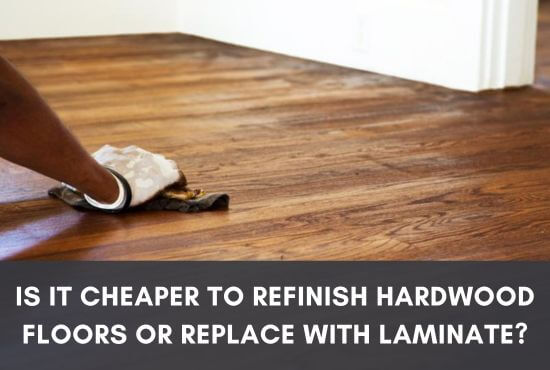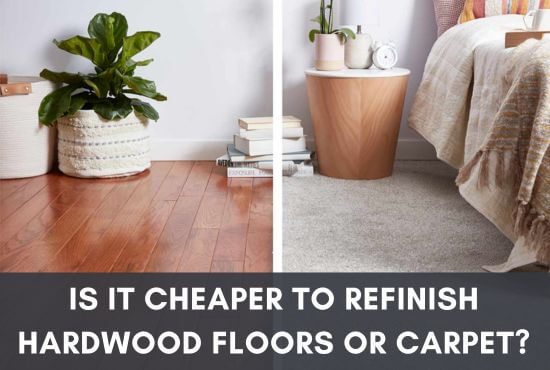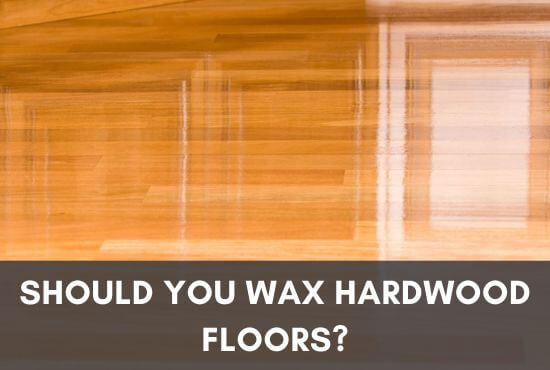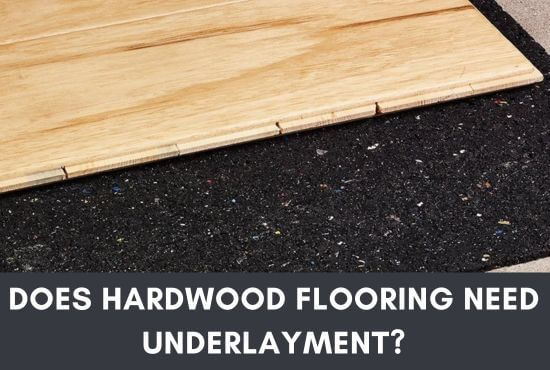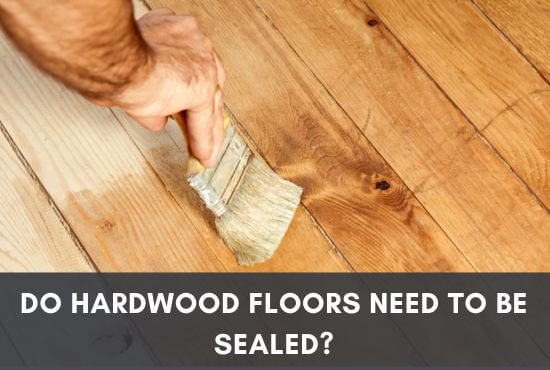Getting wooden floors installed in your house must be a calculated decision provided the cost of wooden flooring these days.
One would surely want a sturdier solution that can provide optimum value for money and is strong enough to last a reasonable time before it starts to show signs of wear and tear.
A common debate in wooden floorings is between engineered and solid hardwood floors.
Many debate upon their strengths and features but the real question is; which is more durable hardwood or engineered hardwood?
Solid hardwood is far more sturdier and robust when compared to engineered hardwood flooring. The high hardwood content, greater thickness, and exquisite wood types allow hardwood floors to be much more durable and agile for your home or commercial use. Besides, they have much longer longevity and provide far better value for money.
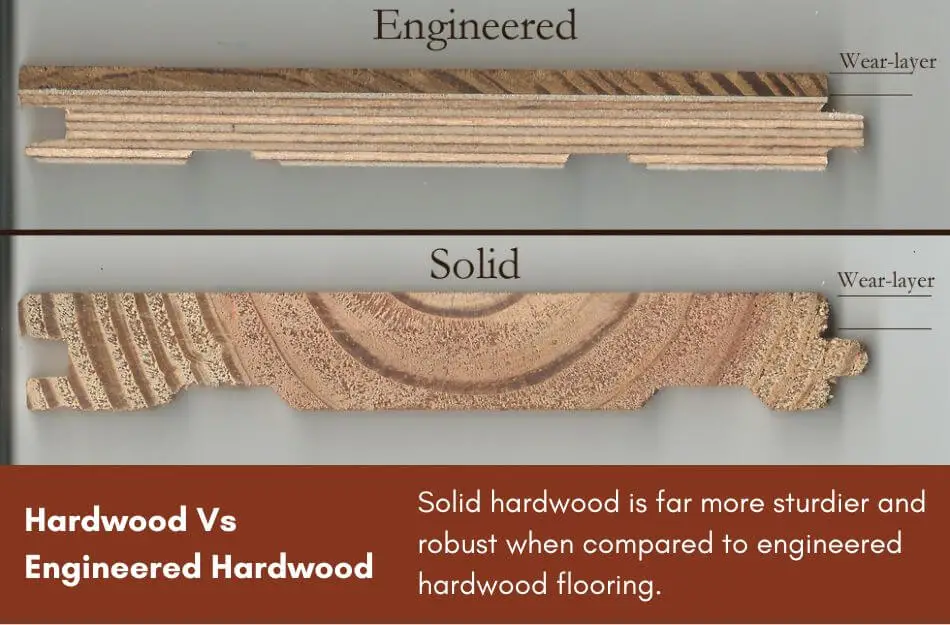
However, engineered wood also has its benefits which are not to be missed out. Therefore, make sure that you read the article till the end as there is a detailed comparison of both wood types listed ahead.
Table of Contents
- 1 What Are Hardwood Floors?
- 2 What Are Engineered Hardwood Floors?
- 3 Which Is More Durable Hardwood Or Engineered Hardwood?
- 4 Engineered Vs. Solid Hardwood | Detailed Comparison
- 5 Which Is Better, Wood Or Engineered Wood?
- 6 What Is The Most Durable Type Of Wood Flooring?
- 7 What Are The Disadvantages Of Engineered Wood Flooring?
- 8 Do Engineered Wood Floors Scratch Easily?
- 9 Bottom Line
What Are Hardwood Floors?
Hardwood floors are one of the most common and exquisite flooring options. They are made from natural wood which might be treated with chemical and pressure treatments to make them resistant to rotting and decaying.
Hardwood is cut into boards and installed on a subflooring platform to make a beautiful structure of wooden flooring inside the house.
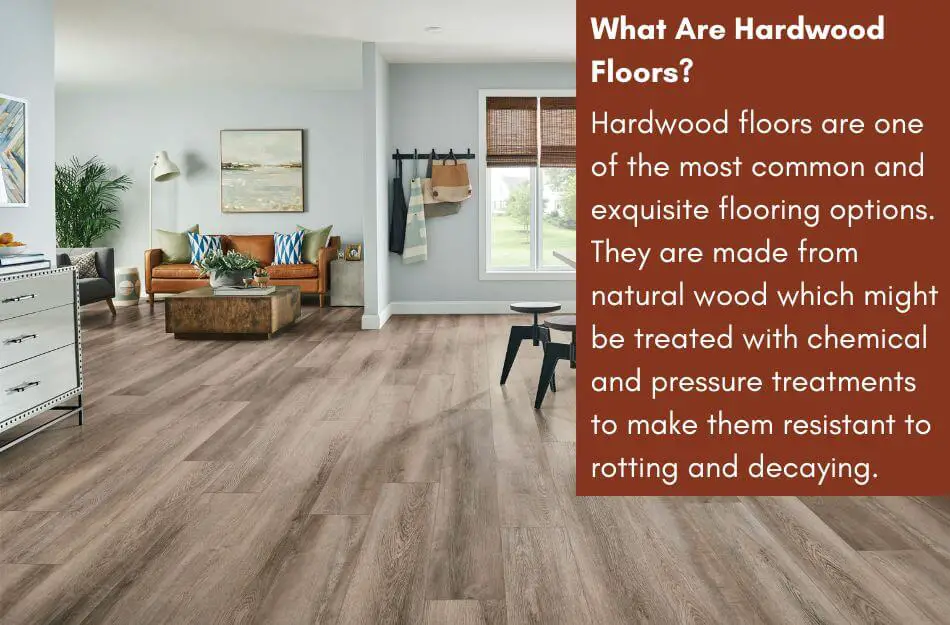
There are many types of hardwood, from oak to mahogany and many more. Each has its color, design, wood pattern, perks, and strength ratios.
Besides, these prices also vary according to the type of wood you have chosen. Engineered wood is also branched from the hardwood category, as explained below.
What Are Engineered Hardwood Floors?
Engineered wood is a sub-type of hardwood, a synthetic material that combines wood and other composite materials such as PVC and plastic.
Engineered hardwood allows you versatility and variety in colors and designs for your home while offering additional durability and strength.
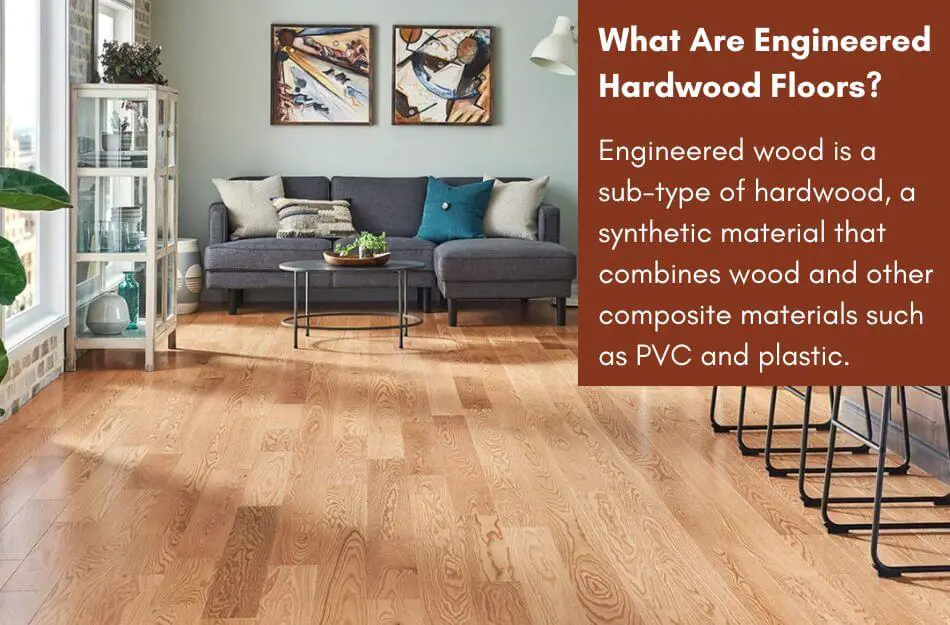
Though it is made of real wood, it also comprises other composite materials such as veneer, vinyl, etc., making it even more robust.
While the core is made of plywood or hardwood, the top is usually layered with veneer for further protection and resistance against wear and tear.
Hence, it is more durable, strong, and has higher longevity than many other flooring solutions.
Which Is More Durable Hardwood Or Engineered Hardwood?
Hardwood is certainly more durable than engineered wood. Due to its thicker surface and the ability to be restored and refinished occasionally, it can receive a lot more traffic and pressure than thin and composite-engineered wood.
While many debate the features of engineered hardwood floors for being resistant to moisture, rotting, and decay, these attributes are naturally found in the higher grades of hardwood.
Besides, solid hardwood floors can improve in all these areas once they are coated with durable sealant or finish.
Hence, we can easily deduce from the discussion above that hardwood floors are more durable than engineered wood.
Engineered Vs. Solid Hardwood | Detailed Comparison
Both solid hardwood and engineered hardwood floors are very practical and popular in the flooring community.
However, both of them have some pros and cons over each other which need to be addressed. If you are also looking for the answer to which wooden flooring is better among these two, read the in-depth comparison below to find out.
Appearance
While both of these woods are great flooring options, hardwood takes the lead in this section due to its extensive variety in terms of species and wood colors.
The diverse array of color selections available in solid hardwood is something engineered wood can’t match.
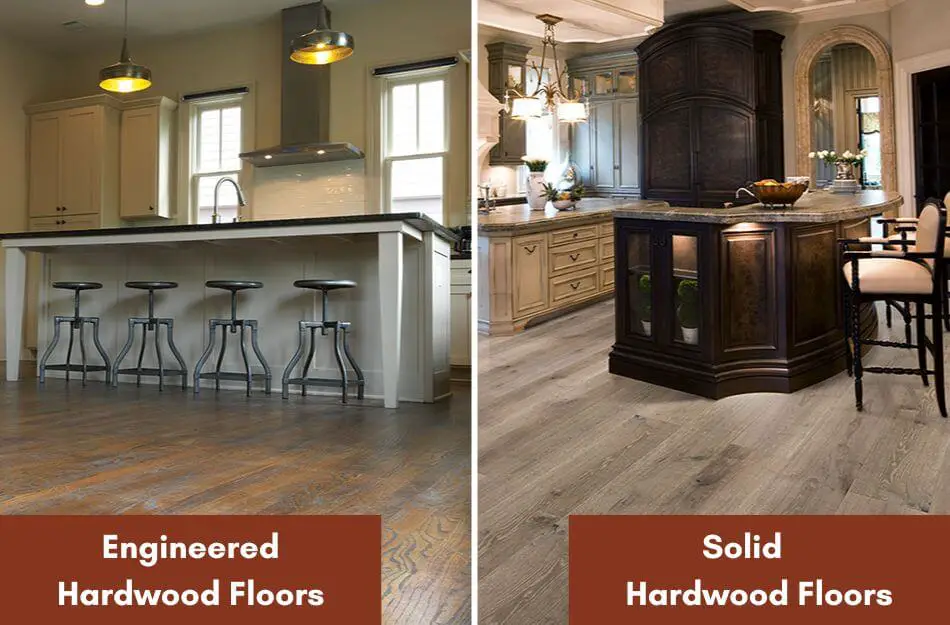
Besides, the tight seams of hardwood floors make them look much more refined and streamlined. Moreover, you can also get solid hardwood flooring on sealed and non-sealed surfaces.
On the contrary, engineered hardwood features wider boards for a more open and spacious appearance of the room they are being installed in.
While it does not have the same range of colors and species as solid hardwood, engineered wood gives you a decent choice in design and pattern.
Besides, engineered hardwood can also be bought in a prefinished or unfinished condition, depending on your preference.
In addition, engineered wood has beveled edges, which make the boards more spacious and increase the gap between them.
Comfort & Sound Absorption
Comfort and sound dampening are necessary for the flooring as you don’t want your feet to hurt while you walk on the floors, nor would you want to disturb the neighbors downstairs with loud voices.
Besides, hollow voices from the subflooring platform and the echo can make the area generally noisy.
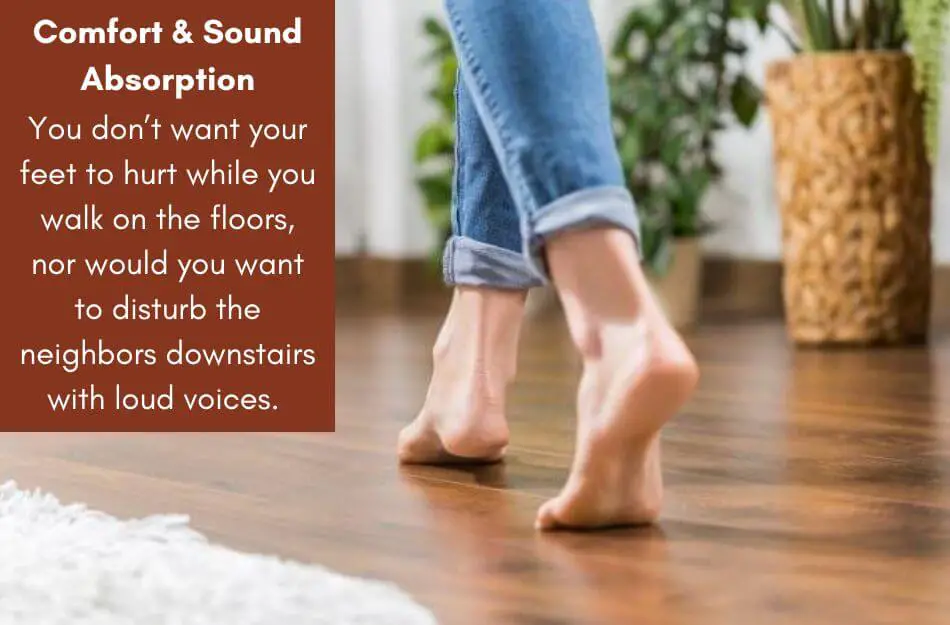
If we compare both types of wood under this criteria, we can certainly see that the solid hardwood floors are far better performers in this section.
As they are installed over a subflooring platform and fastened with nails, screws, and adhesive solutions, they do not produce as many hollow sounds.
Whereas engineered hardwood floors are usually installed using floating floors in which the boards are snapped together and laid on the subflooring without actual installation into the structure.
This leaves much hollow space, which promotes hollow sounds and a noisy platform.
However, when we talk about the comfort factor, engineered wood takes the lead exactly because of its disadvantage.
Solid hardwood floors, as evidenced by their name, are solid under the floors, and it won’t be wrong to say that they are quite rigid.
You can call them more comfortable than tiles and concrete, but they are less soothing than engineered hardwood floors.
The rigid platform of the solid hardwood floors doesn’t allow for compression, which makes the surface hard upon impact.
On the other hand, floating floors welcome compression and allow the boards to bend slightly when you step on them to create a cushioning effect.
Hence, engineered wood is far more comfortable than solid hardwood, while the latter is far better at sound absorption.
Stability
Stability is one of the most important factors when it comes to hardwood floors because an uneven floor is difficult to walk on and poses many threats, such as tripping, breaking of boards, buckling of hardwood floors, and much more.
The platform is quite sturdy and stable as the solid hardwood floors are fixed into the surface of the subflooring structure using nails, screws, and adhesives.
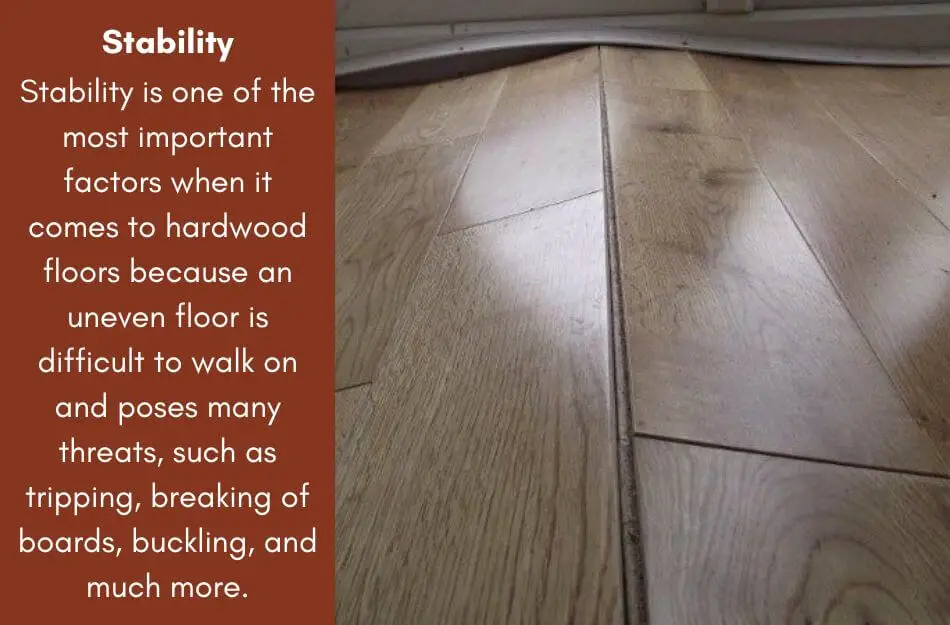
Solid hardwood floors might creak or squeak a bit when installed, but that is for a short time during the acclimation period (if it hasn’t been allowed earlier).
But once this stage passes, the floors are solid and do not move an inch. However, if they still tend to squeak and creak, there is certainly some problem with the subflooring structure.
But if not, solid hardwood floors are among the most stable platforms you can have. Engineered hardwood does not provide the optimum level of stability expected from a floor.
Even with the wider boards and beveled edge, engineered wood’s stability is disappointing. The floating floors concept causes the boards to shake when you step on them.
Besides, in worst cases, the boards may move from their original position leading to buckling or lifting.
Hence, they are less stable than solid hardwood floors and do not give the homeowner a completely reliable solution.
Affordability
Being affordable is one of the most important attributes a wooden flooring needs to have. Hardwood floors are considered a luxury, and not many can afford them.
However, with more development in the industry, the more common types of solid hardwood are cheaper and much more affordable to the common person.
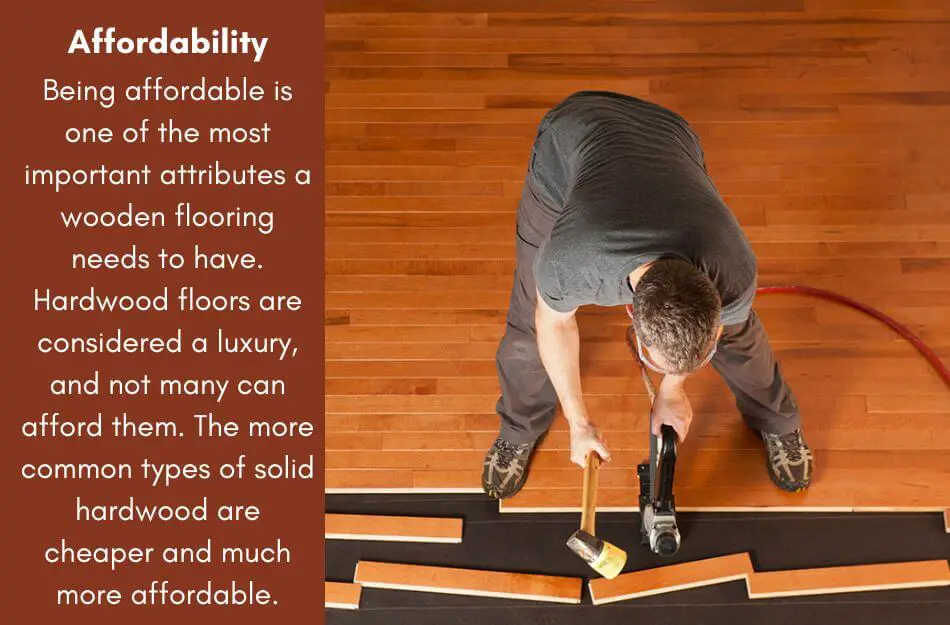
The average range of hardwood flooring is between $4 to $12. It is noteworthy here that it is only the cost of the hardwood planks and does not include the cost of labor, installation charges, transportation charges, and other materials. Adding them can increase the cost from $3 to $10 per square foot.
As far as engineered wood is concerned, it is cheap and affordable for almost everyone.
The price range is around $4 to $7.
However, it is only the cost of the hardwood planks and does not include the cost of labor, installation charges, transportation charges, and other materials. Adding them can increase the cost from $3 to $10 per square foot.
As far as affordability is concerned, engineered wood is far more affordable as compared to solid hardwood.
The difference might initially seem insignificant, but moving to a larger area significantly impacts the project’s overall cost.
For instance, for a room of 10×5, which is 150 sq. ft, the cost of installing solid hardwood floors would be around $1200 (only the cost of flooring), while the cost of engineered hardwood for the same dimensions would be around $800.
Besides, the labor and installation charges for engineered wood are far less than that for solid hardwood, as the process is far simpler and easier. Hence, the project’s overall cost would have a difference of at least a few grand at the end.
Water & Heat Resistance
Engineered and solid hardwood are both suitable options if the temperature is high in the area. Be it your kitchen or a very hot day; both can easily withstand heat without demanding extra care or treatment.
While heat ratings for wood are not a thing, we can still agree that both of these woods are equally good with heat.
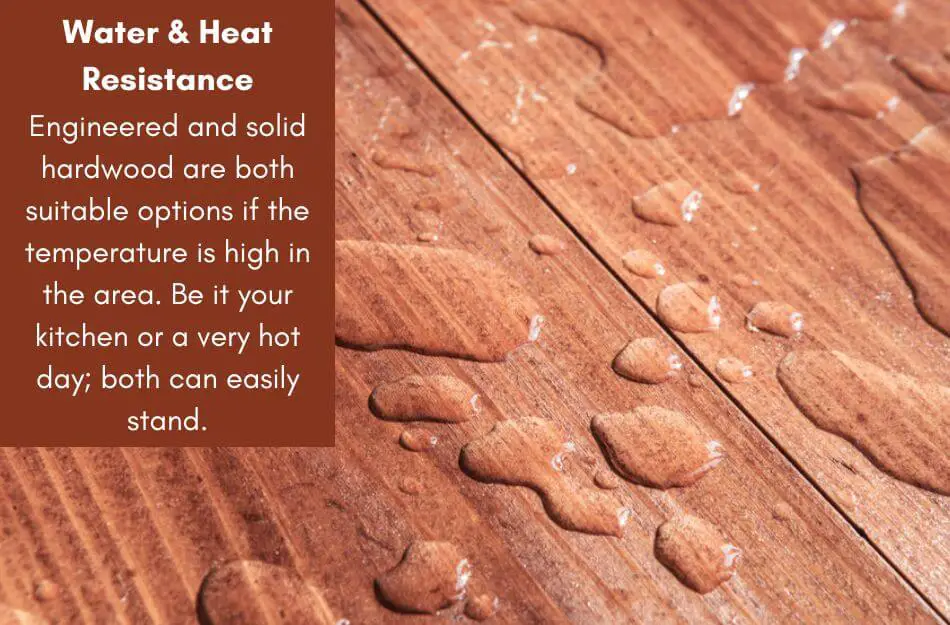
Wood is known to be cool naturally, and if you live in a hotter environment, having hardwood or engineered wood floors is the best option to combat the heat’s intensity.
As far as water is concerned, none of these is recommended to be installed in areas that will be truly wet.
For instance, you can’t install hardwood or engineered wood in your shower, but you can certainly install it in rooms and the kitchen.
Hence, it can be deduced that both are suitable for areas with “high moisture content”. However, engineered wood is far better than solid wood in a moist area.
Whether finished or not, solid hardwood has a porous surface that can absorb much moisture, causing many problems and damaging wooden planks.
Besides, installing solid hardwood directly on concrete or the ground without any moisture barrier is not recommended.
In addition, you would certainly need an underlayment to protect the planks from moisture, while coating it with a sealant is a must (if it is not prefinished).
However, this is not the case with engineered wood, as the core is made of plywood or hardwood, and the top is usually layered with veneer for further protection and resistance against wear and tear factors.
This gives it an in-built moisture barrier and a non-porous surface that is not affected by moisture or water.
You might need to finish the engineered wood if it doesn’t feature a factory finish. But engineered wood is a better choice if you are looking for a suitable solution for humid environments.
Maintenance
Maintenance is crucial when deciding between two types of flooring, as the cost of maintenance and the efforts required can shape one’s decision.
However, this might not be a deciding factor between engineered and solid hardwood because both require equal maintenance without any difference.
Daily vacuuming and dry mopping with a damp cleaning using a detergent or a wood cleaning solution once in a while work best.
Moreover, if the floors are finished already, you won’t have to worry much about cleaning as the surface of the seal does not let dust and dirt accumulate on top.
This attribute, paired with simple cleaning methods, means you won’t have to do much to keep your wooden floors clean.
Restoration & Lifespan
Longevity and the ability to be restored are factors that can’t be compromised under any circumstances.
Wooden floorings are truly an investment; hence, one would certainly not want their investment to go to waste or depreciate daily.
In both these factors, hardwood floors emerge victorious as they feature a life far longer than engineered woods.
The average lifespan of a solid hardwood floor ranges from 50 to 100 years depending on the type of wood chosen at the time of installation, the traffic received by the floors, and the amount of upkeep or care the floors were given.
Furthermore, after every 5-10 years, the solid hardwood floors can be refinished, where the varnish is stripped off the floors, cleaned, sanded, stained, and then sealed again.
This increases their lifespan and allows the homeowner to restore the original appearance and shine of the hardwood floors.
Comparing this to the engineered wood, we do not get the same results because it can’t be sanded down for restoration or finishing the surface layer.
The veneer layer on top makes sanding the engineered wood impossible, as you can only sand the wood grain and not the veneer to get a desirable result.
In addition, the engineered wood boards are quite thin compared to the solid hardwood ones, making it almost impossible to sand them as there isn’t much margin to sand them down to.
Hence, solid hardwood floors are the best long-term solution for you and can be restored to their original appearance several times despite the damage they have received.
Ease of Installation
The process of installation matters a lot when choosing between two wood types. A complex process would require professional attention and hence, would cost a lot more than installing it by yourself.
Besides, the complex installation also means that you can’t perform repairs or resurfacing by yourself, and in case of any damage or treatment required, you will have to contact a professional every time.
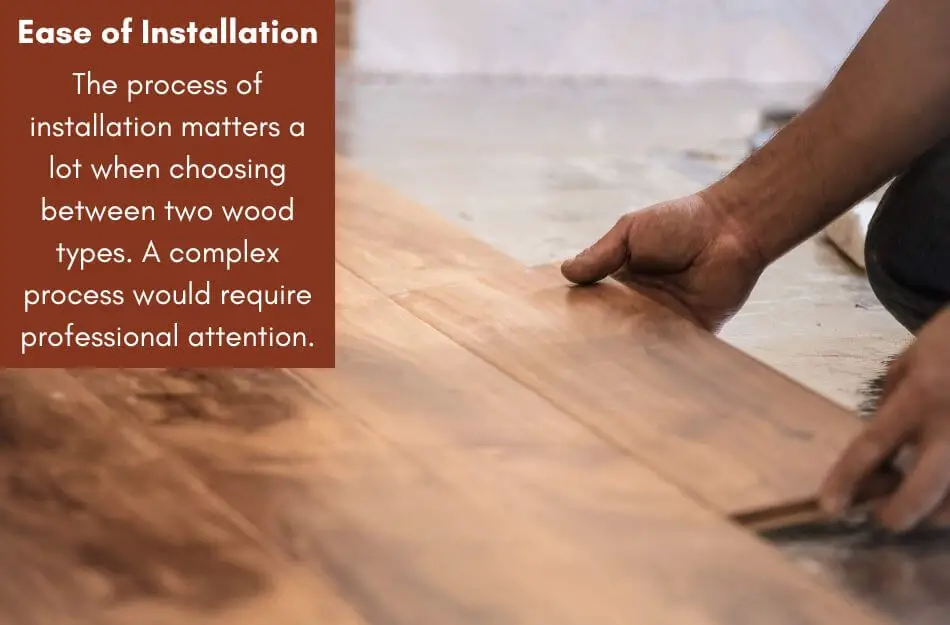
Solid hardwood floors are not easy to apply in this situation. They require a subflooring platform, moisture and water barriers, underlayment, and whatnot.
Hence, it is usually not possible for an average homeowner with zero or basic carpentry knowledge to install the hardwood floors by themselves.
Besides, the installation of solid hardwood floors involves many steps such as nailing, cutting the boards, screwing, and using tongue and groove joints to fix the boards together.
All of this would be too much for an average homeowner to handle.
However, engineered wood is pretty easy to install and does not require much skill or knowledge as watching a simple tutorial can help you achieve your goal.
In addition, the wider boards mean that a lesser number of boards will be used which can make the task much easier.
Besides, engineered wood is mostly installed using the floating floors technique in which the planks are snapped together and not installed into the subflooring structure.
This makes the process quite simpler and easier for anyone to carry out.
Furthermore, there is generally no nailing or screwing in engineered wood so you don’t have to worry if you don’t have good hardware skills.
Hence, engineered wood is far easier to install which makes it a suitable candidate for the people who don’t want to hire professional services but do not have ample skills.
Lastly, the ability to install the floors yourself will also save you a lot of money at the time of installation and when any repairs or replacements are necessary.
Variety of Sizes
Every homeowner understands that not all situations can be satisfied with the same size of planks.
For instance, a large room would require a considerable size of boards or the smaller ones would be required in a huge number to fill the area, this would certainly look add. Similarly, a small room with boards too big would look boxy and trite.
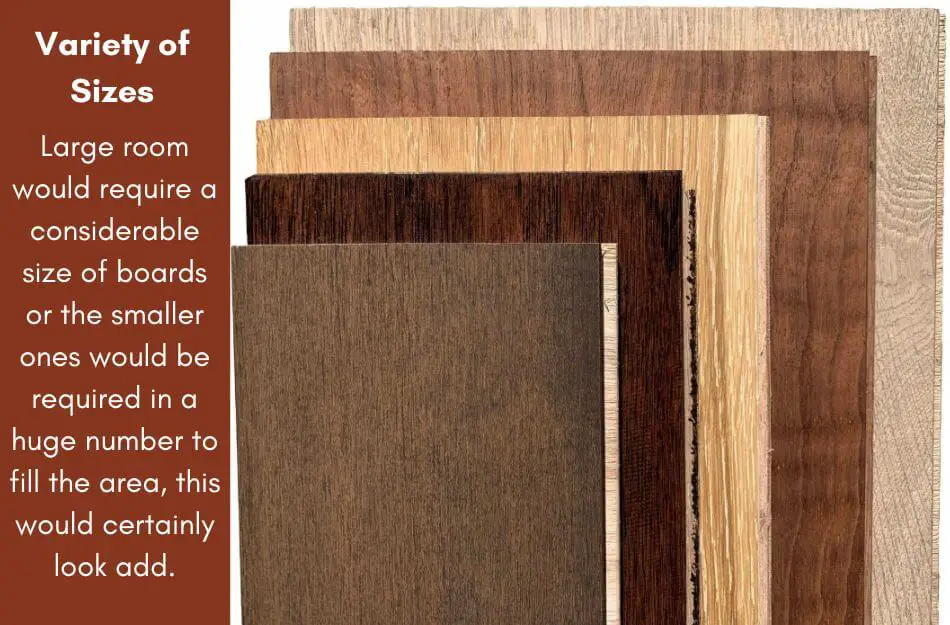
Hence, you would need the right size of boards according to the dimensions of your floor.
Many people believe in cutting the boards to the desired dimension but that is only possible with larger boards and often involves too much wastage of material.
Wrong plank sizes can also affect the cost as a larger number of smaller boards might be more expensive than a smaller number of larger boards.
In addition, the thickness of the planks also matters according to the surface beneath and the amount of traffic they are expected to receive.
Thin boards are not effective in areas with extensively high traffic and you would need thicker planks to replace them very soon.
Most probably there won’t be a winner in this category as both engineered and solid hardwood offer a decent variety of sizes. Solid hardwood floors are available in thicknesses of ¾ inches and can go as thick as 2 ¼ inches.
Besides, the length of the boards can also be chosen from 12 to 80 inches depending on what you prefer. Lastly, the width of the planks is usually around 4 inches.
On the other hand, engineered wood offers you thickness ranging from ⅜ to 9/16 inches.
As mentioned earlier, engineered wood boards are much wider and can go as much as 7 inches wide. However, the length is a bit short going up to only 60 inches for each plank.
It is not possible to list out a winner in this scenario as both of these are practical measurements and one might be more useful than the other according to the situation and your preference.
If you like narrow and long planks you should go with solid hardwood. But if you prefer wide and short boards you must choose engineered hardwood for your floors.
Resale Value
Wooden floors are an investment and every homeowner wants the highest possible returns on their investment. For those who face difficulty understanding this concept, allow us to explain.
The installation of wooden floorings in your is a value-addition process that increases the value of your property. This helps you get an increase in the selling price or the rental value of your house.
Both engineered and solid hardwood floors offer good returns but solid hardwood is certainly the winner of this round.
The century-long lifespan paired with the exquisite look and luxury touch to the interior of your house is sure to give the buyers an attractive appeal.
Recent studies have found that solid hardwood floorings yield up to 106% ROI to the homeowner upon the time of selling.
This means that the cost of the hardwood floors is returned to you and you even get a profit when you sell the house.
The amount of profit will depend upon the condition of your floors, their age, and the type of wood you have used in the floorings.
As far as engineered wood is concerned, it is certainly a suitable add-on to your property but many people realize that it does not have a longer lifespan.
Besides, engineered hardwood floors do not offer as much variety so it becomes a bit challenging to find the right type of flooring to complement the theme of the house.
However, it will still give you reasonable returns and is a significant addition to the estate. Engineered wood floors will certainly suit you if you are looking forward to flipping properties and want to find a quick solution to get a value addition to your property.
Though it is not a life-long solution, it surely lasts a decade or even more which makes it the most appropriate option to opt for before listing your property for sale.
Eco-friendly
In this rapidly changing time with environmental threats all around, many homeowners are considerate enough to choose products that go in line with nature and do not cause any significant harm.
The same concept applies in the flooring industry as it is directly linked to trees and forests.
If you are also an environmentalist or simply someone who cares about nature, you would also be concerned about which one you should go with.
Solid hardwood has a higher wood content and hence, requires more trees to be cut down. However, it can’t be labeled as harmful to the environment.
If you buy the floorings from a credible manufacturer, you will come to realize that hardwood floorings can be refinished and resurfaced which eliminates the necessity of replacing them.
Replacing planks or entire floors would mean that you have to get new floorings for which more trees have to be cut.
But this is not the case with hardwood floorings as they last for a century in most cases.
Besides, even when it is time to replace the hardwood floors, they are 100% biodegradable and won’t pose any risk to the environment.
Engineered wood on the other hand has a lower wood content which means that a fewer number of trees will be cut for that. Besides, it requires a smaller number of wood per plank when compared to its counterpart.
In addition, engineered wood can also be made from wood leftovers from other categories and processes.
The veneer sheet on the top is carefully placed to not give off many sawdust and by-product pollutants. However, it is not as biodegradable as hardwood floors.
The composite materials and the adhesives used in manufacturing can release VOCs (volatile organic compounds) that come from resins in the compound.
The wooden planks can release toxic gasses at the time of installation and will have to be disposed of in landfill sites once they have been degraded to a certain extent.
Hence, this makes them a non-biodegradable option for the environment.
Which Is Better, Wood Or Engineered Wood?
Solid wood is a better choice in any scenario for your floorings due to its strong and agile nature. It is resistant to wear and tear factors and allows for a better appearance overall.
Besides, solid wood can be repaired if damaged, but you don’t have the same luxury with engineered hardwood floors. In case of any damage, you will inevitably have to replace the planks.
What Is The Most Durable Type Of Wood Flooring?
Oak is considered the most durable type of wood flooring, with a lifespan of up to 100 years. Besides, oak is affordable and can be customized according to your preferences.
It is one of the best receivers of wood stains and absorbs them very smoothly to give your hardwood floors the look you want them to have.
What Are The Disadvantages Of Engineered Wood Flooring?
The greatest disadvantage of engineered wood is its inability to be restored. The thin surface and the veneer coating on top make it almost impossible to sand and re-seal the wood.
This decreases the lifespan of engineered wood which is another of its downsides.
Besides, engineered hardwood’s lack of variety and colors decreases its popularity among the flooring community.
Do Engineered Wood Floors Scratch Easily?
No, engineered hardwood floors share the same surface as solid hardwood floors and are hence resistant to scratches.
The surface is smooth but still resilient enough to prevent any minor scratching, and major scratches are also resisted to quite an extent.
Bottom Line
Hardwood floors are generally the most common option when it comes to wooden floorings but solid hardwood takes the lead on all other types including engineered hardwood floors.
The strength and durability are unmatched and even though it might lack a bit in some factors, they can surely be covered with a few add-ons.
For instance, noise-cancellation features can be achieved with an underlayment and extra strength against moisture and water can be harnessed using a suitable varnish for your hardwood floors.
But you can’t do the same with engineered hardwood as it is not as strong as solid hardwood and no measure can increase its strength or durability to such an extent.
However, engineered wood is also a good option if you are on a budget or want to sell the property anywhere soon.
Whichever type of flooring you want in your house depends on your goals and what you prefer personally. Hence, it would be highly suitable that you make your decision accordingly.
If you are getting confused upon choosing the right type, make sure to consult the guide above and check the factors which attract or suit you the most and then decide.
If you’ve also decided to get wooden floors in your house, don’t waste any time and get going today!
John Henry is a passionate co-creator of FlooringFlow.com. a website dedicated to answer all of your flooring related questions. After taking the challenges of flooring DIYs while learning skills for years, John is now ready to share his knowledge related to floor remodeling and projects with you.

![70 Bedroom Color Schemes: [year] Home Bedroom Refresh 70 Bedroom Color Schemes: [year] Home Bedroom Refresh](https://flooringflow.com/wp-content/uploads/2024/07/25-Cool-4th-of-July-Decorations-for-Outdoor-Patio-to-Celebrate-in-Style-16.jpg)
